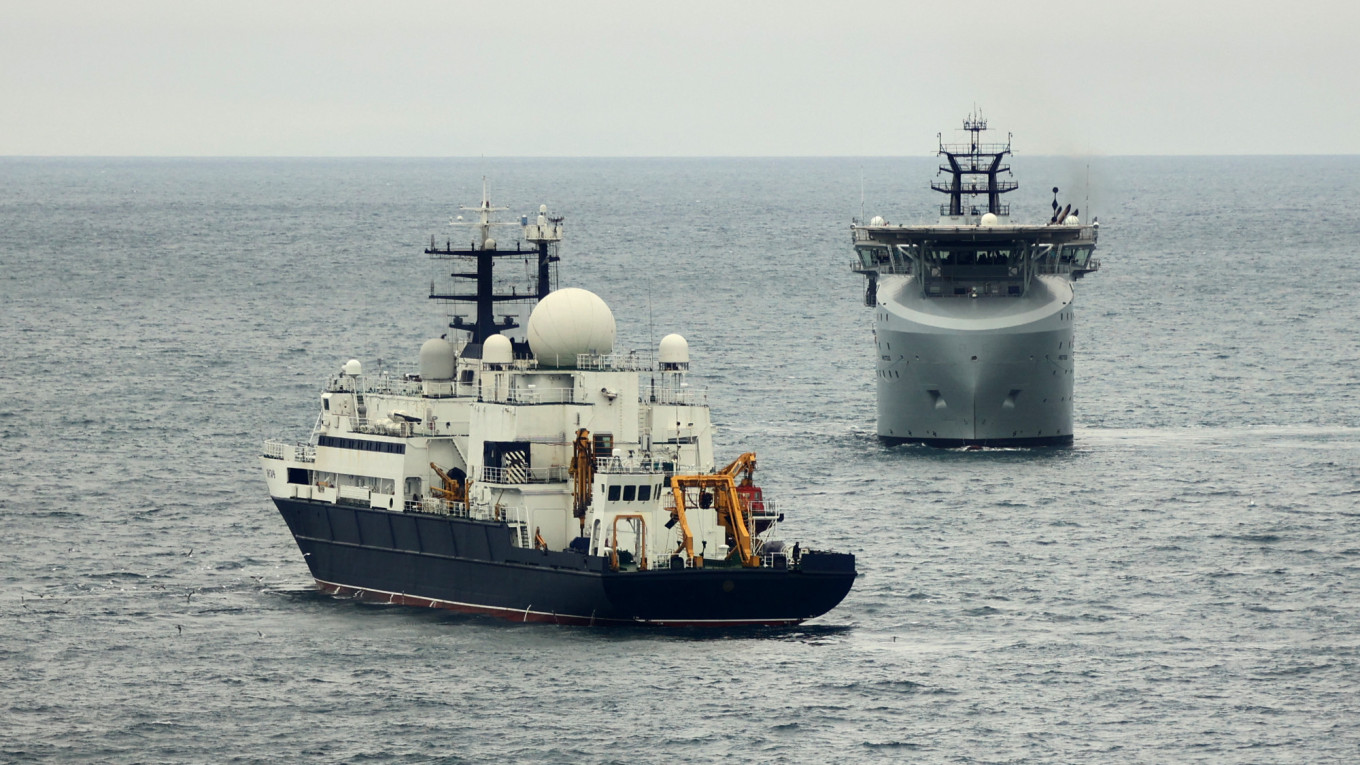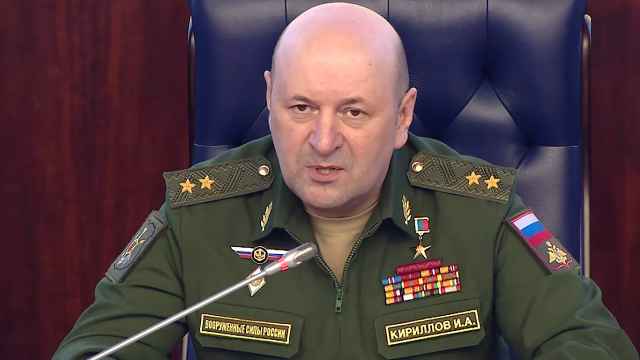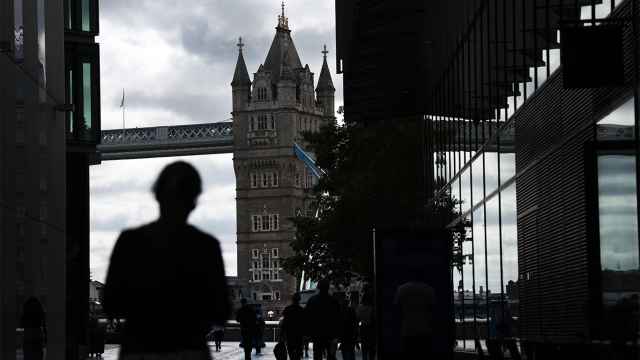Russia on Thursday denied ever targeting underwater communications cables, a day after London accused a "Russian spy ship" of passing through British waters and issued a direct warning to President Vladimir Putin.
Britain said on Wednesday that its Royal Navy had tracked the ship about 45 miles (72 kilometers) off its coast, saying the vessel was being used for "gathering intelligence" and had been mapping critical underwater infrastructure.
The accusations come with concern about the sabotage of underwater communications links between NATO countries, blamed on Russia.
In a statement cited by Russian state news agencies, Moscow's Embassy in London said: "The accusations made by the British defense establishment against Russia of creating some kind of threat to the underwater communications of the country and its NATO allies are absolutely untenable. Such threats never come from Russia."
It accused London of "inflaming tensions" in the Baltic and North Sea.
The Kremlin had earlier declined to comment on the issue.
British Defense Secretary John Healey told parliament on Wednesday that the Yantar ("Amber" in Russian) had been "mapping the U.K.'s critical underwater infrastructure."
"I also wanted President Putin to hear this message: 'We see you, we know what you're doing and we will not shy away from robust action to protect this country'," he told MPs.
Healey said it was the second time the Yantar had been detected in British waters in recent weeks, after it was spotted in November.
Several undersea telecom and power cables have been severed in the Baltic Sea in recent months, with experts and politicians accusing Russia of orchestrating a hybrid war.
The sabotage has been blamed on a "shadow fleet" of vessels — often aging and operating under opaque ownership — that carry Russian crude oil and petroleum products, embargoed since the invasion of Ukraine.
The most recent incident occurred on Dec. 25, when the Estlink 2 electricity cable and four telecom cables linking Finland and Estonia were damaged.
That came just weeks after two telecom cables in Swedish waters were severed on Nov. 17 and 18.
Asked about Healey's statement, Kremlin spokesman Dmitry Peskov said on Thursday: "I do not have information on what this is about in detail. So I would not comment on this."
Relations between Moscow and London have been frosty for years, with Russia singling out the U.K. as one of the most hostile Western countries, but have dipped to new lows since Russia launched its military offensive on Ukraine.
A Message from The Moscow Times:
Dear readers,
We are facing unprecedented challenges. Russia's Prosecutor General's Office has designated The Moscow Times as an "undesirable" organization, criminalizing our work and putting our staff at risk of prosecution. This follows our earlier unjust labeling as a "foreign agent."
These actions are direct attempts to silence independent journalism in Russia. The authorities claim our work "discredits the decisions of the Russian leadership." We see things differently: we strive to provide accurate, unbiased reporting on Russia.
We, the journalists of The Moscow Times, refuse to be silenced. But to continue our work, we need your help.
Your support, no matter how small, makes a world of difference. If you can, please support us monthly starting from just $2. It's quick to set up, and every contribution makes a significant impact.
By supporting The Moscow Times, you're defending open, independent journalism in the face of repression. Thank you for standing with us.
Remind me later.






